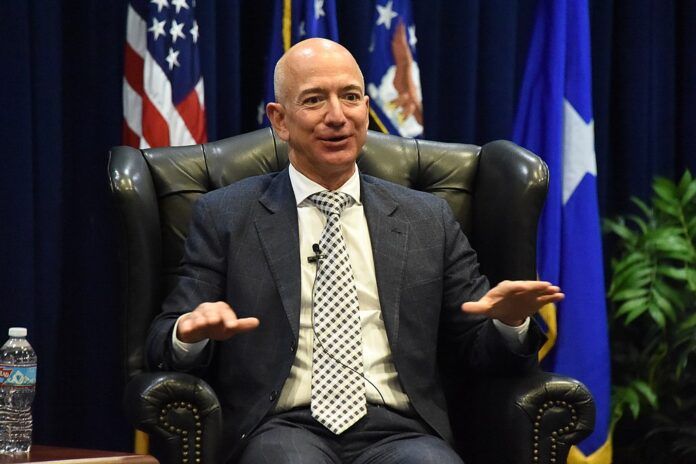The billionaire owner faces criticism from staff and subscribers after the newspaper opted out of endorsing a presidential candidate
In a rare op-ed published on Monday, Jeff Bezos, the owner of The Washington Post, defended his decision to withhold the newspaper’s endorsement in the upcoming presidential race, a move that has resulted in a wave of subscriber cancellations and significant staff resignations. The controversy has ignited discussions about journalistic integrity and the role of editorial endorsements in modern elections.
“Presidential endorsements do nothing to tip the scales of an election,” Bezos asserted. He argued that endorsements often create a perception of bias, compromising the perceived independence of the publication. “Ending them is a principled decision, and it’s the right one,” he maintained.
This statement came shortly after three editorial board members resigned in protest of the decision not to endorse Vice President Kamala Harris, which has drawn ire from many within the journalistic community. High-profile staff members, including former executive editor Marty Baron, have condemned the choice as “craven” and “cowardly,” suggesting it was an effort to appease former President Donald Trump in the event he returns to the White House.
Embed from Getty ImagesReports indicate that an endorsement for Harris had been drafted before Bezos intervened to quash it, a revelation that has intensified scrutiny of his leadership. “I wish we had made the change earlier than we did,” Bezos reflected, acknowledging that the timing of the decision was poorly planned amidst the high-stakes atmosphere surrounding the election.
The fallout from the decision was exacerbated by a meeting between Trump and executives from Blue Origin, a space exploration company founded by Bezos, just hours after the non-endorsement announcement. This has led to allegations of a quid pro quo arrangement, which Bezos vehemently denied in his op-ed. “I would also like to be clear that no quid pro quo of any kind is at work here… It was made entirely internally,” he stated.
Despite the backlash, Bezos asserted that he has maintained a hands-off approach with The Washington Post since acquiring it 11 years ago. He described his wealth as a “bulwark against intimidation” and emphasised that he would not allow the publication to “fade into irrelevance” in an era dominated by unverified social media content.
The decision not to endorse a presidential candidate has sparked fierce debate among prominent journalists. A group of nearly two dozen Post columnists issued a statement expressing their disappointment, stating, “The Washington Post’s decision not to make an endorsement in the presidential campaign is a terrible mistake. It represents an abandonment of the fundamental editorial convictions of the newspaper that we love.”
David Hoffman, a Pulitzer Prize-winning editorial writer, also stepped down from his position on the editorial board, citing a moral obligation to speak out against the threat he believes Trump poses to democracy. “I cannot sit here any longer… I don’t want the Post to be silent about it,” he explained.
Bezos’s op-ed has not quelled the dissent within the newspaper, as many see the non-endorsement as a retreat from the Post’s journalistic responsibilities. Baron has articulated concerns regarding the implications of not endorsing, arguing that if the philosophy is to allow readers to decide on significant issues, then the newspaper should reconsider its editorial stance entirely.
As The Washington Post navigates this tumultuous period, the ramifications of Bezos’s decision continue to unfold, reflecting broader tensions in the media landscape regarding independence, accountability, and the influence of ownership on editorial content.
